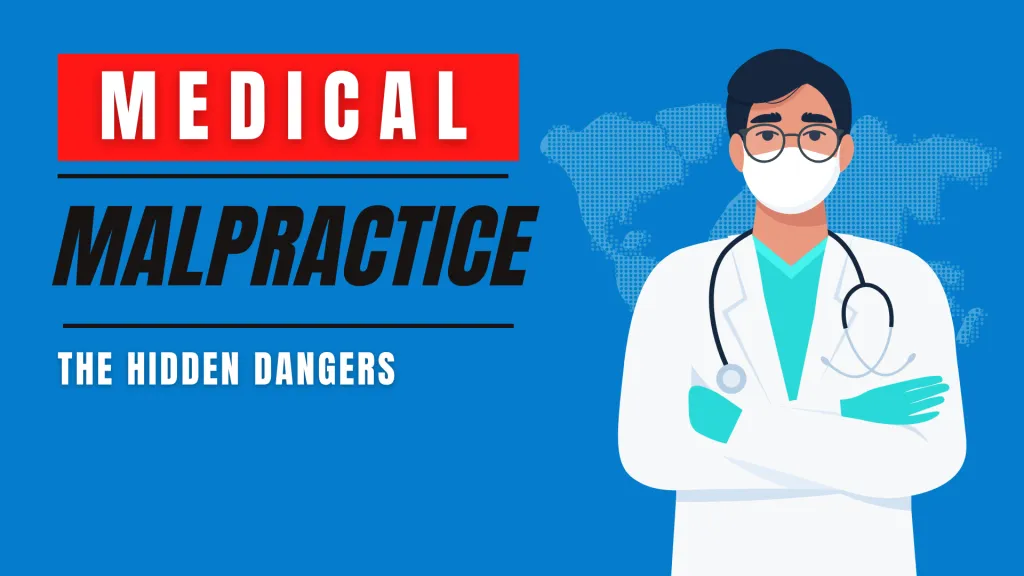Medical malpractice is a term that evokes fear among healthcare professionals and patients alike. It refers to a situation where a medical practitioner fails to provide the standard of care expected, resulting in harm to the patient. While most medical professionals strive to deliver the highest quality of care, errors can and do occur.
However, what many may not realize is that these errors can lead not only to civil litigation but also to severe criminal implications for the providers involved. Understanding this dual risk is crucial for both practitioners and patients, as it sheds light on the importance of diligence and accountability in healthcare.
The implications of medical malpractice stretch far beyond civil lawsuits and can plunge healthcare providers into a legal quagmire. When care goes wrong, it can result in criminal charges, particularly in cases of egregious negligence or willful misconduct.
This blog will explore the hidden dangers of medical malpractice, the potential for criminal repercussions, and the ways both patients and providers can navigate this complex landscape.
Understanding Medical Malpractice
According to www.bbjlawyers.com, medical malpractice occurs when a healthcare provider’s negligence results in harm to a patient. This negligence can take various forms, including misdiagnosis, surgical errors, medication mistakes, and failure to obtain informed consent.
According to a report by the American Medical Association (AMA), medical errors account for a significant number of injuries and deaths annually, emphasizing the need for awareness and prevention strategies.
Statistics reveal alarming trends regarding medical malpractice claims. A study published in the Journal of Patient Safety found that medical errors contribute to as many as 400,000 deaths per year in the United States alone.
Furthermore, a 2017 report from the National Practitioner Data Bank noted that the number of medical malpractice payments has remained relatively steady, indicating ongoing systemic issues in patient care.
Such statistics underscore the critical need for healthcare providers to be vigilant in their practices and for patients to remain informed about their rights and the standards of care they should expect.
The Criminal Side of Medical Malpractice
While most medical malpractice cases are handled in civil court, certain situations can lead to criminal charges.
Criminal negligence arises when a healthcare provider’s conduct demonstrates a gross deviation from the standard of care, leading to significant harm or even death.
In such cases, the law holds providers accountable not only for their mistakes but also for their disregard for patient safety.
Several high-profile cases illustrate the potential criminal consequences of medical malpractice. For instance, in 2016, a Michigan doctor was convicted of second-degree murder for intentionally overprescribing painkillers, leading to several patient overdoses.
Similarly, a California anesthesiologist faced criminal charges after a patient died during a procedure due to improper monitoring. These cases highlight how negligence can escalate to criminal actions, with serious legal ramifications for healthcare providers.
Consequences for Healthcare Providers
Based on kaweckilaw.com, the consequences of medical malpractice can be dire for healthcare professionals. Legally, providers may face civil lawsuits that can result in substantial financial penalties, which could lead to increased malpractice insurance premiums and loss of reputation.
In addition to civil liability, if a case involves criminal negligence, providers risk facing criminal charges that can result in imprisonment, fines, or both.
The legal system often seeks to hold healthcare providers accountable for their actions, and the repercussions can severely impact their careers.
Moreover, criminal charges can have a profound effect on a healthcare professional’s personal life. Beyond the immediate legal consequences, being implicated in malpractice can lead to loss of medical licenses, reputational damage, and difficulties securing future employment.
As a result, healthcare providers must prioritize patient safety and adhere to the highest standards of care to mitigate the risk of legal repercussions.
Protecting Patients and Providers
To prevent medical malpractice and its potential criminal implications, both healthcare providers and patients must adopt proactive measures. Healthcare professionals should engage in ongoing education and training to remain current with medical advancements and standards of care.
Additionally, clear communication with patients about treatment plans, potential risks, and informed consent is essential. Implementing robust quality control measures and regular audits can also help identify areas for improvement and reduce the likelihood of errors .
For patients, being informed about their rights and the standard of care they should expect is crucial. Patients should feel empowered to ask questions, seek second opinions, and report any concerns about their care.
Establishing a trusting relationship with healthcare providers can significantly enhance patient safety and help prevent potential malpractice situations.
Conclusion
The relationship between medical malpractice and criminal implications is complex and multifaceted. As healthcare providers navigate their responsibilities to deliver safe and effective care, they must remain vigilant to avoid the hidden dangers that can lead to malpractice claims and potential criminal charges.
Patients, too, play a vital role in ensuring their safety by being informed and proactive in their healthcare decisions.
Ultimately, fostering a culture of accountability, continuous education, and open communication is essential for both patients and providers.
Healthcare professionals can minimize the risk of malpractice and its severe consequences by prioritizing patient safety and adhering to legal and ethical standards.
As we continue to explore the intricacies of medical malpractice, it becomes increasingly clear that a collaborative approach is necessary to ensure that care never goes wrong.

